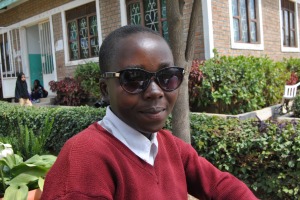In an idyllic world, the mother and father of a child represent caretakers, supporters, and heroes. However, when enduring the immense poverty that traps and suffocates the vast majority of Tanzanians, children view their parents with pity. Rather than a child feeling an understandable sense of frustration or anger due to the lack of a financially stable lifestyle, the child feels sympathy for the lives of his or her own mother and father. Children cannot bear to exist in a world where the people who gave them life are struggling to survive.
Elizabeth, a girl of only 15 years of age, first opened my eyes to this unique complex. When asked the occupation of her father, Elizabeth answered, “My father is a farmer. But my mother also works”. She then took a long, hesitating pause, seeming to really contemplate her next sentence, and then told me with an obvious pain in her voice, “I feel such pity for my father, such pity.” The root of this pity lies at the stereotype that a husband must be able to financially support his family without his wife also working. However, even though Elizabeth’s mother and father must both work in order to pay for the necessities in life, their combined income still does not cover the expenses for some of Elizabeth’s school supplies. Therefore, Elizabeth must also work. She fetches water from a well for other families in order to pay for some of her books. Elizabeth still feels no annoyance within herself despite gathering water every day, going to school, and completing homework. Her father represents a failure, someone who did not take advantage, or have the means, of achieving an adequate education. He represents someone who now struggles to provide a healthy lifestyle for his family.
Although her parents’ lack of education creates many obstacles and hardships for the Mgambi household, Elizabeth channels her fathers’ regret into her own life to increase her potential, study harder, and become more of a success. She aspires to become a successful doctor so she cannot only provide aid for people, but also help her parents exist in a more comfortable and affluent lifestyle.
About the author: Tala Ahmadi is a rising junior at Glenelg Country School in Howard County, Maryland. Tala traveled with The School Fund team to Tanzania as a part of our High School Fellowship program in June and July 2011. Tala and four other students from across America met with their peers in Tanzania to exchange stories and learn about one another’s lives. Tala believes that by understanding the literature, art, and history of a country, one can truly appreciate the values of a culture.


very provocative and interesting story of Elizabeth and her stron family feelings.
Thanks for traveling to Tanzania and helping the students there get the assistance they need
LikeLike
very nice article! Congratulations on your successful trip to Tanzania.
LikeLike